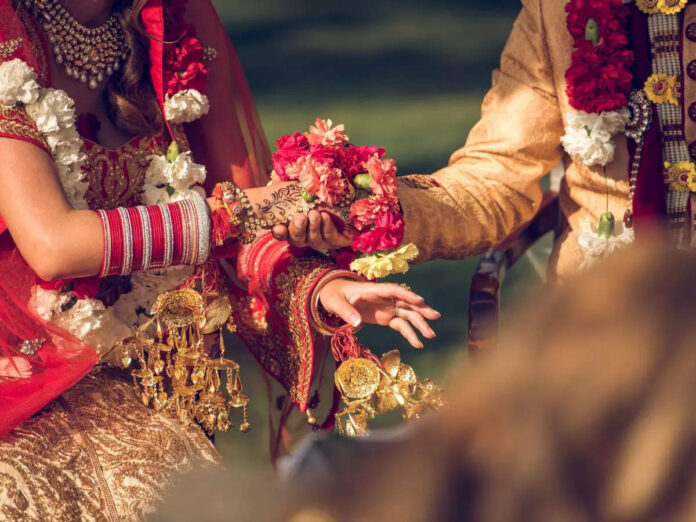From Mama, which translates to “mother uncle,” comes the word “Mameru.” A few days prior to the main wedding in a traditional Mameru ceremony, the bride’s maternal uncle, or “mama,” pays her a visit and brings gifts, candies, and dry fruits. Traditionally, a Panetar saree, ivory or white chura (bangles), gold jewellery, candies, and dry fruits arranged exquisitely in trousseau trays are the presents given to the bride on this special day. This represents the well-wishes of the mother family or the mama to the soon-to-be bride before she sets out on a new life path. Before their wedding, this ritual usually takes place at the home of the bride or groom.
Sometimes referred to as “Mausalu,” the “Mameru” ritual involves the bride-to-be receiving presents and candies from her maternal uncle, or Mausa.
The wedding ceremony beautifully captures the significance of the extended family in Gujarati wedding customs. They offer the extended family an opportunity to get together and enjoy the wedding in addition to being a means of showing the newlyweds our love and best wishes.
Given the diversity of Indian cultures, there are numerous customs of this kind that are practiced throughout the nation. We discuss a few of them here.

